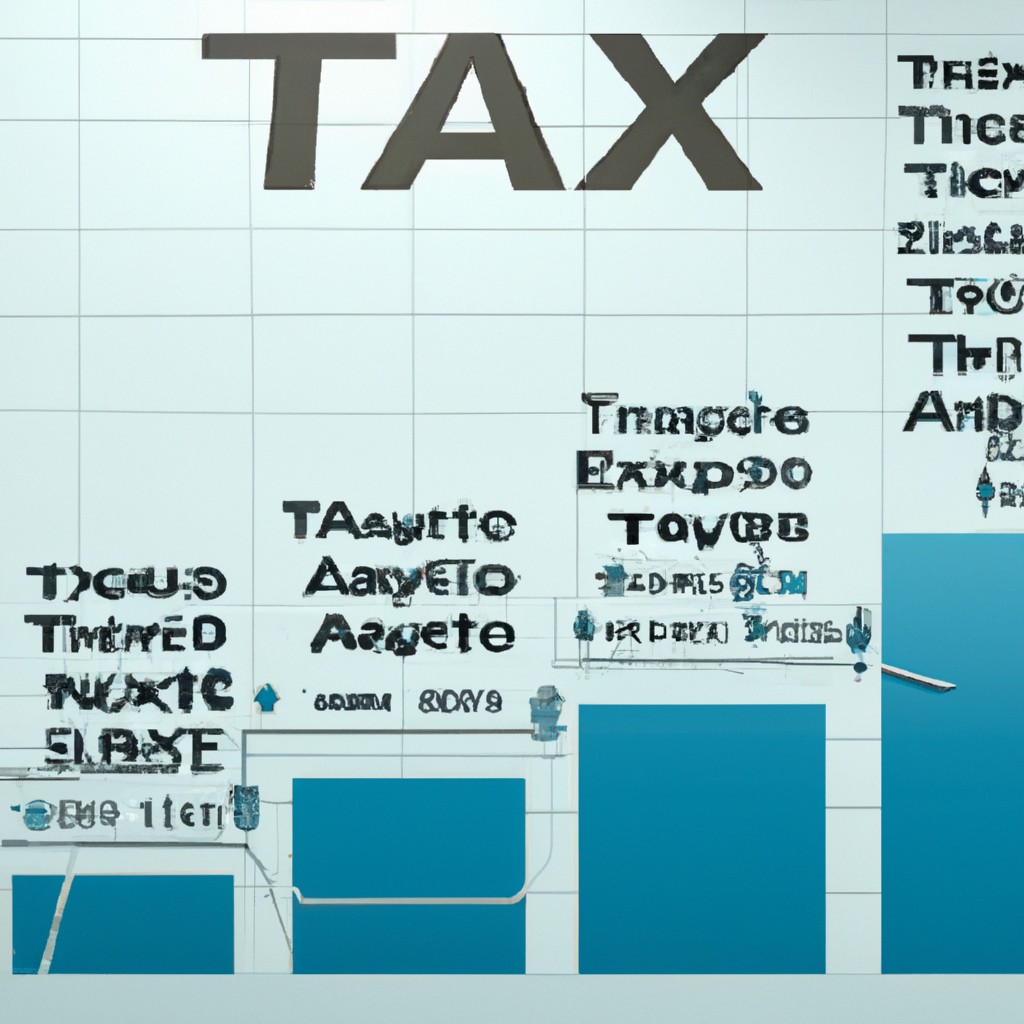Criticisms of Progressive Taxation

Progressive taxation faces criticisms due to its potential to discourage savings and investment. Critics argue that high tax rates on the wealthy may disincentivize hard work and productivity. They suggest that a flat tax could be fairer and simpler to administer. Opponents of progressive taxation claim that it promotes dependency and reduces individual responsibility. Advocates of alternative tax systems believe that a uniform tax rate could stimulate economic growth and innovation. However, defenders of progressive taxation highlight its role in reducing income inequality and funding essential services for the less fortunate. Finding a balance between fairness and economic efficiency remains a crucial challenge in tax policy.
Read more
Historical Perspective on Progressive Taxation

Progressive taxation has a rich history, dating back centuries. It evolved as a response to societal inequalities, aiming to redistribute wealth fairly. The idea is simple: those who earn more contribute a higher percentage of their income to taxes. This approach ensures that the burden of funding public services falls more on the wealthy. Over time, progressive taxation has been championed as a tool for social justice and economic stability. It continues to spark debate, with proponents emphasizing its role in narrowing wealth gaps and opponents citing concerns about disincentivizing success. The dynamic history of progressive taxation reflects changing societal values and economic priorities.
Read more
Role of taxation and redistribution

Taxation is a crucial tool in government's efforts to redistribute income and wealth. Through taxes, funds are collected and then allocated to various social programs. This redistribution aims to reduce economic disparities and support vulnerable populations. By taxing higher-income individuals at a higher rate, governments can fund programs that provide essential services to those in need. This system of redistribution helps create a more equitable society where resources are allocated based on need rather than on wealth alone. The role of taxation and redistribution is vital in promoting social cohesion and ensuring that everyone has access to basic necessities.
Read more
Taxation policies: 1. Types of taxes 2. Tax rates and brackets 3. Tax incentives and deductions 4. Tax evasion and avoidance 5. International taxation and treaties

Taxation policies encompass various aspects, including types of taxes, tax rates and brackets, incentives and deductions, tax evasion and avoidance, as well as international taxation and treaties. There are different types of taxes such as income tax, sales tax, property tax, and corporate tax. Tax rates and brackets determine the percentage of income that individuals or businesses must pay in taxes based on their income or profits. Tax incentives and deductions provide opportunities for individuals and businesses to reduce their tax liability. Tax evasion refers to illegal actions to avoid paying taxes, while tax avoidance utilizes legal means to minimize tax obligations. International taxation involves the taxation of cross-border transactions and the establishment of treaties to prevent double taxation. Overall, understanding taxation policies is crucial for individuals and businesses to navigate their tax responsibilities effectively.
Read more
Relationship between progressive taxation and social welfare

Progressive taxation is a system where tax rates increase as income levels rise. This approach aims to create a fairer distribution of wealth and reduce income inequality. By taxing the wealthy at higher rates, progressive taxation generates additional revenue that can be used to fund social welfare programs. Such programs include healthcare, education, housing, and social security, which provide vital support to low-income individuals and families. Progressive taxation helps to bridge the gap between the rich and the poor, promoting a more equitable society. It can address societal needs, enhance social cohesion, and contribute to overall social welfare and well-being.
Read more
Criticisms and potential drawbacks of progressive taxation.

Criticisms of progressive taxation revolve around several potential drawbacks. Critics argue that it can discourage individuals from working hard and achieving success, as higher incomes are subject to higher tax rates. There is concern that this redistribution of wealth could hinder economic growth and innovation. Some individuals feel that progressive taxation is inherently unfair, as it places a heavier burden on the wealthy while providing fewer benefits to them. Additionally, critics mention that it can be complex and administratively burdensome to implement. Overall, these criticisms highlight the need for a careful balance between addressing income inequality and fostering economic prosperity.
Read more
Progressive taxation in the United States

Progressive taxation in the United States is a system where individuals with higher incomes pay a higher percentage of their income in taxes. This approach aims to create a fairer distribution of the tax burden and reduce income inequality. The progressive tax structure is based on the principle that those who earn more should contribute more towards public services and societal needs. It allows for a gradual increase in tax rates as income levels rise, ensuring that the wealthy bear a larger share of the tax responsibility. This system helps fund essential government programs and social welfare initiatives, promoting economic stability and providing support for those in need.
Read more
Progressive taxation in Sweden

Progressive taxation in Sweden is a system where individuals with higher incomes pay a larger proportion of their earnings in taxes compared to those with lower incomes. This approach is designed to promote fairness and reduce income inequality. In Sweden, the tax rates increase progressively, meaning that the more you earn, the higher the tax percentage. The revenue generated from these taxes is used to fund various social welfare programs and public services, such as healthcare, education, and infrastructure development. This system is widely supported in Sweden and is seen as a way to create a more equal society and provide essential services for all citizens.
Read more
Progressive taxation in Germany

Progressive taxation in Germany is a system where the tax rate increases as income rises. This approach aims to redistribute wealth and reduce inequality. Higher earners pay a higher percentage of their income in taxes compared to lower earners. The German government uses a progressive tax scale with several tax brackets. Individuals who earn more are placed in higher tax brackets and pay a higher rate. This system allows the government to provide social services and support for those who need it most. Progressive taxation is seen as a way to create a fairer society and ensure that everyone contributes to the overall well-being of the country.
Read more
Progressive taxation in Brazil

Progressive taxation in Brazil aims to redistribute wealth by placing a higher tax burden on those with higher incomes. The tax rates are tiered, with the more affluent individuals paying a larger percentage of their income. This system is designed to promote socioeconomic equality and reduce the gap between the rich and the poor. By implementing progressive taxation, the government can fund essential public services and welfare programs, such as education, healthcare, and social security. Critics argue that this approach can discourage economic growth and investment, while others believe it is a necessary tool for a fair and just society.
Read more












